Premium Only Content
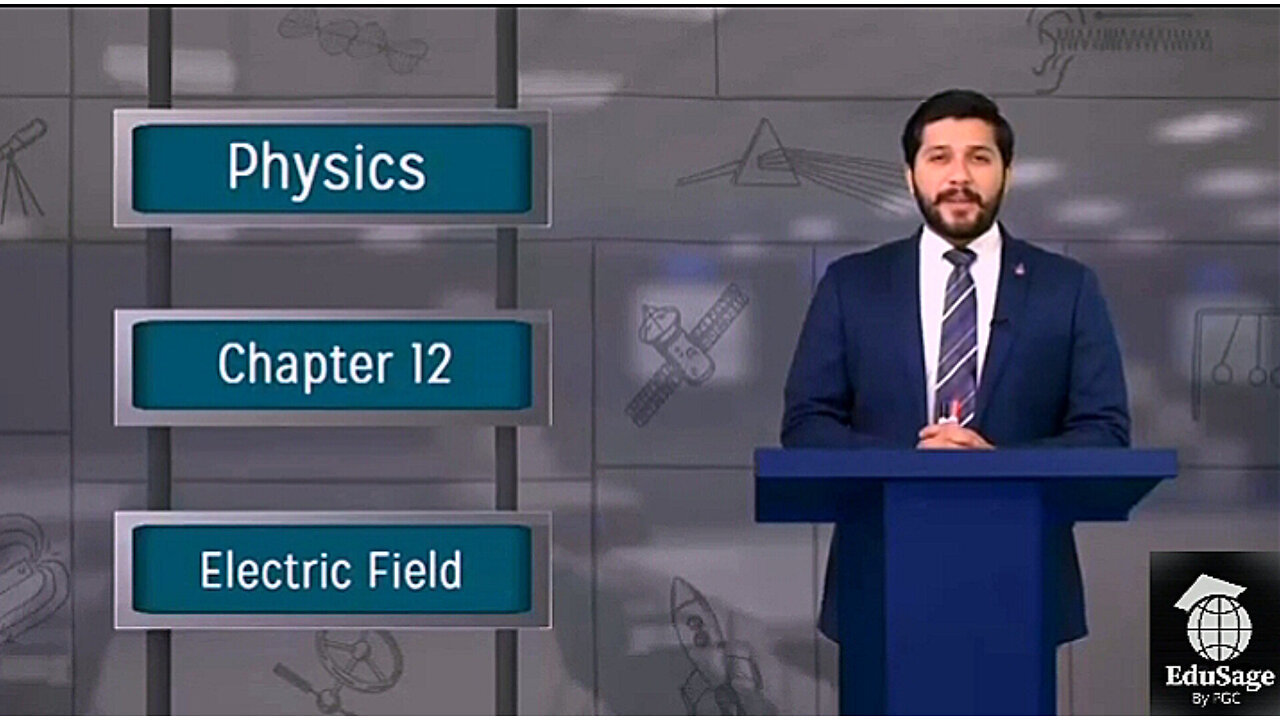
Coulomb's law part 2 by hassan Fareed pgc lectures
Study.comLog In
Copyright
Science Courses / Course / Chapter
Science: Topics & Philosophy
Lesson
Transcript
Joseph Comunale, Amanda Robb, Ana Benito Gonzalez
What is science? Read the definition and learn about related topics. Understand the process of science, the scientific method, and the underlying philosophy.
Table of Contents
Science Definition and Topics in Science
History of Science
Philosophy of Science and Science in Daily Life
The Scientific Process and Scientific Method
Lesson Summary
Show
Additional Activities
Fun Science Experiment: How to Make a Density Tower:
No matter what type of science they study, one thing almost all scientists do is conduct experiments. Here's an experiment you can do to study density, which is the scientific term that describes how compact or dense is a substance. The density of liquids is a concept often used in several of the sciences described in the lesson, such as chemistry, physics, and biology. For example, the density in our body fluids, such as blood, has to remain constant to keep it functioning properly.
Materials you will need:
Water with food coloring
Milk
Honey
Vegetable oil
Dishwashing liquid
Tall straight glass
Ping-pong ball
Cherry tomato
Bolt
Turkey baster
Steps:
Get your tall glass and start by pouring honey (which is the densest liquid). Carefully pour about 3/4 of an inch (Same width for every layer from now on).
Next, add the milk slowly with the turkey baster against the glass (not to disturb the layer of honey underneath).
Add the dishwashing soap now using the turkey baster against the glass wall again.
Next, add the fourth layer, the water with food coloring with the turkey baster against the wall once more.
Finally add the vegetable oil, the same way.
Now, you can gently drop the small objects (or similar ones): bolt, tomato and ping-pong ball.
You will observe that each object will sink to different layers in the glass. For example, the bolt will sink to the bottom because it is denser than honey. The tomato will sink until it meets the milk.
Questions:
What do you think will happen to the ping-pong ball?
Can you predict the result?
Why do you think that would happen?
What do you think would happen if you tried to mixed all the liquids by shaking the glass?
Answer:
The ping-pong ball will float on top of the oil since it is the less dense of these three objects.
Feel free to try any other small objects you have at hand!
Some of the liquids won't be able to mix with the others, the oil due to its properties will separate fully few minutes after you settle the glass down again.
Remember to have fun!
Science Definition and Topics in Science
Science is the study of the universe around us and within us, natural phenomena, and solutions to problems. Scientists want to observe natural phenomena or events to understand the mechanisms that cause them and explain how or why those natural events occur.
In addition, science attempts to solve problems by using a methodology based on both empirical evidence and the analysis of that evidence.
There are three main branches of science:
Natural
Social
Format.
These are all science because they attempt to explain the universe around us and ourselves by using the scientific method to observe, record, collect data, hypothesize, predict, experiment, and share results with peers within the scientific community, not specifically in that order.
To unlock this lesson you must be a Study.com Member.
Create your account
What Is Science?
Science is the study of the physical and natural world through observations and experiments. Science is all around us. Right now, the fact that you exist and are in the process of reading this lesson is science. The process of creating the air we breathe - also science. The food we enjoy, water we drink, and clothes we wear are all based in science. Looking up into the atmosphere gives us a glimpse into astronomy, another branch of science. You can't get around it. Science is everywhere and is one of the most important topics of study in our world.
Video
Quiz
Course
227K views
History of Science
It is difficult to point a finger at a particular time in history when science began. Science is a way of observing, describing, and explaining; science is a way of knowing. Throughout history, there have been many philosophies and ways of viewing the world that can be classified as scientific. In this sense, we could say science began when the human brain became capable of analyzing the world sufficiently to manipulate the environment around us and make tools that we could apply to solving problems.
To unlock this lesson you must be a Study.com Member.
Create your account
Philosophy of Science and Science in Daily Life
Science is an epistemological methodology attempting to describe and explain the universe, us, and natural events. Scientists construct theories that they believe are supported by the information and data that they observe and collect. Scientists look for confirmation. This confirmation comes in varying degrees, however. Usually depending on how new or complicated a theory is, it might be only slightly confirmed by a small piece of evidence, or it might be strongly confirmed by years of observations, investigations, research, and experimentation from many independent lines of evidence.
A philosopher of science might ask, What makes a theory more confirmed or supported than another theory? Or even To what extent can theories be confirmed at all? David Hume, an 18th-century philosopher, argued that science relies heavily on inductive reasoning. Whenever we make a prediction about what will happen in the future or how or why something is happening, we rely on evidence from the past to justify our claims.
For example, I suppose that the desk I am about to place my coffee cup on will support my coffee cup. What is my reasoning for believing that? My desk has always supported my coffee cups in the past, so I conclude it will do so again. Of course, my evidence from the past does not provide me with a logical guarantee that this phenomenon of coffee cup support will continue in the future; the desk could finally collapse one day. This inductive reasoning can be applied to many things in day-to-day life: Will my job still be there in the morning? I have taken care of my car, so will it start today like it did yesterday?
Hume argued that scientists suppose that their explanations of natural events will be confirmed in all places and in all times. Theories become more powerful or more firmly confirmed by lines of evidence that are independent from one another. For example, the theory of evolution has confirmation in areas of study such as
Paleontology (the study of fossils)
Molecular biology (studying DNA)
Ecology (the study of natural ecosystems).
However, claims about what has been observed in the natural world up until now do not logically predict all claims about the future, according to Hume.
A common example of inductive reasoning can be used to present an argument about swans:
Premise 1: A scientist observes a white swan.
Premise 2: A scientist observes another white swan.
Premise 3: A scientist observes yet another white swan ...
Premise 1000: A scientist observes their thousandth white swan.
Conclusion: Therefore, all swans are white.
Anyone familiar with black swans might have realized that the problem of induction rears its head in this argument. Just because someone observes a thousand white swans does not necessarily mean all swans are white. Upon visiting New Zealand and observing a black swan, the scientist can see that the above conclusion to the argument is falsified or rendered untrue.
The philosopher Karl Popper presented a solution to Hume's problem of induction and the supposed doubt it can cause someone to put on scientific theories, explanations, and laws. Scientists must also rely on a philosophy of knowledge called falsificationism.
According to Popper, science does not rely on induction to progress further, but instead on the falsification of hypotheses, theories, and possible laws and predictions. Rather than solely progressing through theories by using inductive confirmation, it is also necessary to always attempt to falsify theories through deductive reasoning. Therefore, scientists come up with theories from which they can deduce something empirical through testability. Empiricism is the philosophy that knowledge comes from the senses. Before a theory develops support or confirmation, it must first start out as a hypothesis, or a testable prediction or explanation. Testable means that the explanation or prediction must have a circumstance in which, if observed, it would render the hypothesis false; this is also called falsifiability. If a scientist has a hypothesis, they need to imagine a circumstance, a piece of evidence, or an outcome to an experiment that would make their hypothesis incorrect. If they can do this, their idea or prediction is falsifiable.
Rather than solving Hume's problem of induction when philosophizing about science, Popper avoided the problem all together. In Popper's schema, science does not attempt to prove things to be true, but rather it systematically weeds out the ideas that have been or can be rendered false. Science doesn't prove, science supports. This distinction can help us correctly categorize the differences between hypotheses, scientific theories, and scientific laws.
To unlock this lesson you must be a Study.com Member.
Create your account
The Scientific Process and Scientific Method
Scientists, regardless of their area of expertise, all have one thing in common: They use scientific methods. The scientific method is not a rigid set of steps that always starts one way and ends with a certain step, but scientists generally do follow certain patterns when performing scientific investigations. There are several common parts to the scientific method, depending on the questions a scientist asks and the topics they study. A scientist might add new steps, repeat steps, or even skip steps when doing their investigation. Generally, though, we can say the scientific method follows a vague map based on observations and empirical evidence.
Usually a scientist's path will begin with asking a question or stating a problem.
Then the scientist gathers information and data, performs research, or makes their own observations.
When the scientist has collected enough information or observations, they might form a hypothesis that attempts to either explain or predict.
The scientist will then test their hypothesis by either performing an experiment or making further observations in the field.
The results of the test must then be analyzed to interpret their meaning or what they entail.
Then the scientist must draw a conclusion based on the results to determine if their hypothesis is supported or not supported.
From here the scientist might realize they need more data, more experiments, or even a new hypothesis, in which case the scientist may need to go back and repeat some steps in this process.
The scientific method is not linear.
Simplified Scientific Method Diagram
Depending on the question being asked and the topic a scientist is studying, a scientist will always perform an investigation, and some of these investigations might require experimentation. Not all scientists perform experiments all the time. Some sciences, like zoology (the study of animals), might require less laboratory experimentation and more in-the-field observations and data collection.
Parts of an Experiment
An experiment usually contains two variables. A variable is a factor that can cause change in the results of an experiment or a change that occurs in an experiment. The two variables that all experiments have are independent and dependent.
The independent variable is the variable the scientist performing the experiment will intentionally adjust and manipulate to observe how the outcome of the experiment changes; in other words, the independent variable is the factor being tested in an experiment.
The dependent variable is the variable the scientist will observe to see how it changes because of the manipulation of the independent variable; the dependent variable is the factor being measured as a result of, at the end of, or throughout the experiment.
A popular example used in science books is performing an experiment to test what brand of fertilizer will help plants grow the largest. If a scientist were to perform this experiment, the different brands of fertilizer would be the independent variable because the scientist would be intentionally manipulating and testing each fertilizer. As a result of this intentional manipulation, the plants might grow to different sizes. The measurements the scientist takes to confirm a change in the size of the plants, which would be caused by the manipulation, would be the dependent variable.
For this experiment to make sense and have meaningful results, it must be performed in way that maintains consistency to isolate causal links between variables, or the mechanisms regarding the hypothesis. That is, the experiment must also have its constants and control group.
To unlock this lesson you must be a Study.com Member.
Create your account
Lesson Summary
Overall, science is a methodology and way of obtaining knowledge about the universe around us and ourselves, and discovering applications for that knowledge. Scientists follow similar methodologies that place a high value on empirical evidence and observations made by the scientist through
investigations
research, and
experimentation.
To unlock this lesson you must be a Study.com Member.
Create your account
Branches of Science
Physics
Science is organized from the most basic forces in nature to some of the largest, like the study of the earth and space. The study of physics focuses on laws and properties that govern behavior of all matter. Physics often involves things we can't see or touch, but can prove, like gravity. We can't see or touch gravity, but because of years of experiments, we know it's there.
Physicists also study energy, mechanics, motion, waves, electricity, nuclear reactions, and forces. People interested in physics use scientific laws and theories to build some of the things we see everyday, like bridges, cars, buildings, and power plants. If it's a structure or involves a motor, physics was surely considered when creating it.
Albert Einstein was one of the most famous physicists to date. He developed the theory of relativity, which is the basis for black holes and the potential for time travel, as well as how matter is converted to energy, which is used in nuclear power plants.
Chemistry
Chemistry is the study of chemical reactions and properties of matter. All the principles in chemistry are based on what we know about physics. As you can see, science topics build on each other, like a pyramid. Chemistry involves how atoms, the smallest particles of the world, bind together to create compounds. Although this might seem minor, chemistry is responsible for nearly any household product you use. Hair care products, cleaning products, even the packaged foods you eat, are all based in chemistry. For example, in the lab, scientists use chemical reactions to make compounds that smell like certain natural foods. One of the earliest discoveries was methyl anthranilate, a compound that smells like grapes and was one of the original ingredients in grape Kool-Aid.
Other chemists had a more significant impact on the world. Marie Curie was the first to discover two new radioactive elements and to use radiation to treat cancerous tumors. Her work revolutionized medicine. Unfortunately, she eventually died of radiation exposure. Before her death, she received a Nobel Prize in Chemistry, one of the most esteemed awards for scientists.
Biology
Biology is the study of life, and the principles and compounds in chemistry form the foundation for it. Biology spans from studying the most minuscule structures inside cells, called organelles, to giant masses of land with specific climates, called biomes. Biologists study cells, genetics, anatomy and physiology of the body, evolution, and ecology. Biology is perhaps the most relevant to human life, as many biologists focus on studying our bodies and the components inside them, like cells and DNA.
In fact, some of the earliest geneticists were interested in the basics of DNA. In 1953, James Watson and Francis Crick published their work on the structure of DNA inside cells, which launched the field of cellular genetics. Now, scientists working for the government and many independent companies are racing to find cures for cancer, treatments for diabetes and heart disease, and infectious diseases like HIV through studying cells and genetics.
Video Transcript
What Is Science?
Science is the study of the physical and natural world through observations and experiments. Science is all around us. Right now, the fact that you exist and are in the process of reading this lesson is science. The process of creating the air we breathe - also science. The food we enjoy, water we drink, and clothes we wear are all based in science. Looking up into the atmosphere gives us a glimpse into astronomy, another branch of science. You can't get around it. Science is everywhere and is one of the most important topics of study in our world.
Branches of Science
Physics
Science is organized from the most basic forces in nature to some of the largest, like the study of the earth and space. The study of physics focuses on laws and properties that govern behavior of all matter. Physics often involves things we can't see or touch, but can prove, like gravity. We can't see or touch gravity, but because of years of experiments, we know it's there.
Physicists also study energy, mechanics, motion, waves, electricity, nuclear reactions, and forces. People interested in physics use scientific laws and theories to build some of the things we see everyday, like bridges, cars, buildings, and power plants. If it's a structure or involves a motor, physics was surely considered when creating it.
Albert Einstein was one of the most famous physicists to date. He developed the theory of relativity, which is the basis for black holes and the potential for time travel, as well as how matter is converted to energy, which is used in nuclear power plants.
Chemistry
Chemistry is the study of chemical reactions and properties of matter. All the principles in chemistry are based on what we know about physics. As you can see, science topics build on each other, like a pyramid. Chemistry involves how atoms, the smallest particles of the world, bind together to create compounds. Although this might seem minor, chemistry is responsible for nearly any household product you use. Hair care products, cleaning products, even the packaged foods you eat, are all based in chemistry. For example, in the lab, scientists use chemical reactions to make compounds that smell like certain natural foods. One of the earliest discoveries was methyl anthranilate, a compound that smells like grapes and was one of the original ingredients in grape Kool-Aid.
Other chemists had a more significant impact on the world. Marie Curie was the first to discover two new radioactive elements and to use radiation to treat cancerous tumors. Her work revolutionized medicine. Unfortunately, she eventually died of radiation exposure. Before her death, she received a Nobel Prize in Chemistry, one of the most esteemed awards for scientists.
Biology
Biology is the study of life, and the principles and compounds in chemistry form the foundation for it. Biology spans from studying the most minuscule structures inside cells, called organelles, to giant masses of land with specific climates, called biomes. Biologists study cells, genetics, anatomy and physiology of the body, evolution, and ecology. Biology is perhaps the most relevant to human life, as many biologists focus on studying our bodies and the components inside them, like cells and DNA.
In fact, some of the earliest geneticists were interested in the basics of DNA. In 1953, James Watson and Francis Crick published their work on the structure of DNA inside cells, which launched the field of cellular genetics. Now, scientists working for the government and many independent companies are racing to find cures for cancer, treatments for diabetes and heart disease, and infectious diseases like HIV through studying cells and genetics.
To unlock this lesson you must be a Study.com Member.
Create your account
Register to view this lesson
Are you a student or a teacher?
Intro to Astronomy: Help and Review
29 chapters | 363 lessons
Ch 1. The History of Astronomy: Help and Review
The Scientific Field of Astronomy 5:52
The Ancient Study of Astronomy 4:30
The Constellations: Definition & Name Origins 4:58
What is Astrology? 7:25
The Zodiac Constellations & Their Visibility in the Sky 4:06
Telling Time in Ancient Times 6:41
The Lunar Calendar & Metonic Cycle 4:17
The Connection Between the Seven Days of the Week & Astronomical Objects 4:14
Geocentric, Heliocentric & Ptolemaic Models of the Universe 6:23
Heliocentric Theory: Definition & Model 6:03
The Copernican Revolution 5:43
Tycho Brahe's Contribution to Astronomy 5:34
Kepler's Three Laws of Planetary Motion 6:43
Galileo, the Telescope & the Church 10:26
Sir Isaac Newton And Astronomy 7:13
Origins of the Julian & Gregorian Calendars 5:58
Johannes Kepler: Biography, Facts & Discoveries
What is Astronomy? - Definition, History, Timeline & Facts 7:49
What is Science? - Definition, Topics & Branches 6:42
Go to The History of Astronomy: Help and Review
Ch 2. How Scientists Think and Work: Help and...
Ch 3. Matter, Energy, and Astronomy: Help and...
Ch 4. Light in Astronomy: Help and...
Ch 5. Newton's Laws in Astronomy: Help and...
Ch 6. Rotational Motion and Astronomy: Help...
Ch 7. Orbits, Tides, and Gravity: Help and...
Ch 8. Relativity in Time and Space: Help and...
Ch 9. Conservation Laws in Astronomy: Help...
Ch 10. Earth's Spheres and Astronomy: Help and...
Ch 11. The Earth, Sky, and Moon: Help and...
Ch 12. The Moon's Form and Phases: Help and...
Ch 13. The Atmosphere on Earth and Other...
Ch 14. Influences on Climate: Help and...
Ch 15. The Sun and Energy: Help and...
Ch 16. Star Types and Significance: Help and...
Ch 17. Measurement of Star Qualities: Help and...
Ch 18. The Birth and Life of Stars: Help and...
Ch 19. Star Death and Stellar Remnants: Help...
Ch 20. Formation of the Solar System: Help and...
Ch 21. Galaxies, Stars and Solar...
Ch 22. Components of the Solar System: Help...
Ch 23. Small Celestial Bodies in the Solar...
Ch 24. The Milky Way Galaxy: Help and...
Ch 25. Characteristics of Galaxies: Help and...
Ch 26. Life & the Universe: Help and...
Ch 27. Navigation and Timekeeping in...
Ch 28. Telescopes: Help and Review
-
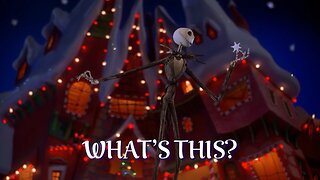 2:48
2:48
Steven Crowder
1 hour agoCROWDER CLASSICS: What’s This? | Nightmare Before Kwanzaa (Nightmare Before Christmas Parody)
35.9K4 -
 LIVE
LIVE
Wendy Bell Radio
7 hours agoThe Bridge Too Far
11,214 watching -
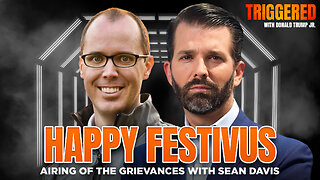 1:03:45
1:03:45
Donald Trump Jr.
22 hours agoHappy Festivus: Airing Our Grievances and Stopping The Swamp w/Sean Davis | TRIGGERED Ep.201
337K407 -
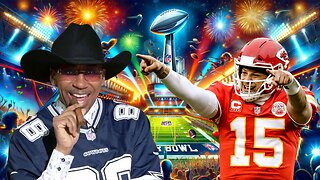 1:30:30
1:30:30
Game On!
10 hours ago $0.01 earnedTop 5 things you need to know for Sports Christmas!
8.72K1 -
 1:58:10
1:58:10
Robert Gouveia
19 hours agoMatt Gaetz REJECTS Report, Sues Committee; Luigi Fan Club Arrives; Biden Commutes; Festivus Waste
235K184 -
 1:31:40
1:31:40
Adam Does Movies
19 hours agoThe Best & Worst Christmas Movies! - LIVE!
22.9K4 -
 58:10
58:10
Kimberly Guilfoyle
21 hours agoAmerica is Back & The Future is Bright: A Year in Review | Ep. 183
140K65 -
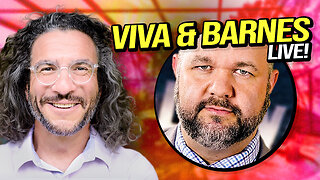 3:03:27
3:03:27
vivafrei
1 day agoEp. 242: Barnes is BACK AGAIN! Trump, Fani, J6, RFK, Chip Roy, USS Liberty AND MORE! Viva & Barnes
224K226 -
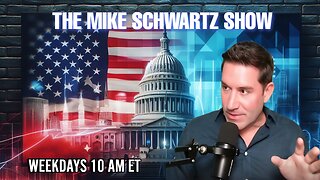 LIVE
LIVE
2 MIKES LIVE
2 hours agoTHE MIKE SCHWARTZ SHOW with DR. MICHAEL J SCHWARTZ 12-24-2024
160 watching -
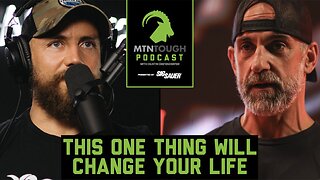 1:14:17
1:14:17
MTNTOUGH Fitness Lab
23 hours agoNavy SEAL Dom Raso: The Cold, Hard Truth About Modern Brotherhood | MTNPOD #96
6.57K1